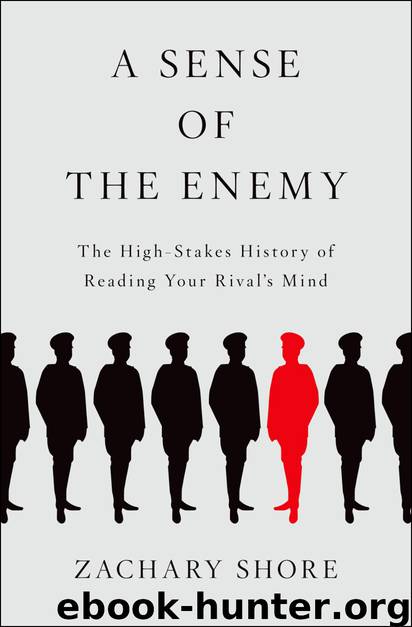A Sense of the Enemy by Shore Zachary

Author:Shore, Zachary
Language: eng
Format: epub
Publisher: Oxford University Press, USA
Published: 2014-03-25T16:00:00+00:00
The Escalation Paradox
Le Duan argued repeatedly that America faced a dilemma. The more troops it deployed, the weaker it became. He articulated this and other assessments of American constraints at the close of 1965, as the escalation was fully underway. In December 1965, when Le Duan addressed the Twelfth Plenum of the Party’s Central Committee, he explained more fully the policy of protracted war. His address began by observing that the war had developed precisely along the lines that the Party had laid out in the Ninth and Eleventh Plenums. (Those comments, however, were highly hedged, offering possibilities, not definitive futures.) He then noted that the situation had developed more rapidly than expected. In mid-1965, he alleged that the puppet army of the South had been on the verge of disintegration but that the Party did not have the necessary means at that time to force its collapse. Had the DRV been able to push the ARVN to the breaking point, he maintained, then the Americans might not have deployed massive ground troops. The lessons from this episode, he said, bore directly on the policy of protracted war.
The policy of protracted war, Le Duan explained, was to use weakness against strength. Even if the enemy deployed 400,000 troops to Vietnam (the United States ultimately sent more than a half million), the Vietnamese would defeat them by bogging them down in a stalemate. That policy, however, did not entail an orderly, step-by-step advance. Instead, it required massing forces against the enemy under specific conditions. The Americans are warmongers by their nature, Le Duan frequently declared. That was why they continued to escalate and expand the war. These appear to be Le Duan’s true beliefs: that the Americans would continue to expand the war if the resistance was insufficient to deter them: and a protracted war would grind them down because it would increase American casualties, which in turn would bolster opposition to the war both within the United States and abroad.
The Politburo was not in complete agreement on these matters. In a rare admission of internal Party disagreement, Le Duan commented that differences of opinion on these matters still remained despite their lengthy, ongoing discussion. The First Secretary stressed that the Politburo was unanimous in its view that no matter how many troops the United States should send, the Vietnamese would defeat them. Further, they all agreed that the Politburo “must firmly maintain and study and digest even further our formula of fighting the enemy using both military and political means.”31 Le Duan insisted that unanimous agreement was essential, crucial to the success of the movement. And then the hint of dissent emerged:
However, in a limited period of time we have not been able to carefully and thoroughly discuss every aspect of each individual issue, and therefore we may have some slight difference on one aspect or another, such as on our assessment of the American imperialists, on the nature and the form of the war, on the formula of a
Download
This site does not store any files on its server. We only index and link to content provided by other sites. Please contact the content providers to delete copyright contents if any and email us, we'll remove relevant links or contents immediately.
The remains of the day by Kazuo Ishiguro(8969)
Tools of Titans by Timothy Ferriss(8363)
Giovanni's Room by James Baldwin(7325)
The Black Swan by Nassim Nicholas Taleb(7106)
Inner Engineering: A Yogi's Guide to Joy by Sadhguru(6785)
The Way of Zen by Alan W. Watts(6600)
Asking the Right Questions: A Guide to Critical Thinking by M. Neil Browne & Stuart M. Keeley(5757)
The Power of Now: A Guide to Spiritual Enlightenment by Eckhart Tolle(5748)
The Six Wives Of Henry VIII (WOMEN IN HISTORY) by Fraser Antonia(5496)
Astrophysics for People in a Hurry by Neil DeGrasse Tyson(5181)
Housekeeping by Marilynne Robinson(4436)
12 Rules for Life by Jordan B. Peterson(4299)
Double Down (Diary of a Wimpy Kid Book 11) by Jeff Kinney(4261)
The Ethical Slut by Janet W. Hardy(4242)
Ikigai by Héctor García & Francesc Miralles(4242)
Skin in the Game by Nassim Nicholas Taleb(4236)
The Art of Happiness by The Dalai Lama(4125)
Skin in the Game: Hidden Asymmetries in Daily Life by Nassim Nicholas Taleb(3987)
Walking by Henry David Thoreau(3952)
